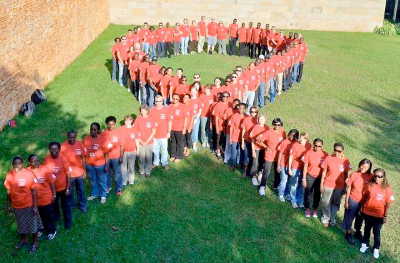By Chargé d’Affaires, AIDS was truly a death sentence in Uganda. Not only did the disease inflict immense personal destruction, pain, and heartache on those infected and the friends and families who loved them, it also threatened Uganda’s very foundation – orphaning millions of children, debilitating the health care system, and stalling economic development.
Before the U.S. President’s Emergency Plan for AIDS Relief (PEPFAR) was established on May 27, 2003, people living with HIV could not imagine living a normal life.
Today, a decade after the launch of this remarkable public health initiative and as a result of unwavering U.S. commitment, an AIDS-free generation is within reach. In sub-Saharan Africa, we’ve seen dramatic progress, with new HIV infections down by 33 percent over the past decade, and AIDS mortality declining by 32 percent since its peak in 2005.
In Uganda the American people invested over $2.3 billion dollars to fight HIV. But more important than the dollars spent are the lives that have been transformed.
In 2004, the first PEPFAR – supported patient in the world was put on antiretroviral treatment (ART) here in Uganda at Reach Out Mbuya. Alive and thriving after nearly ten years, John Robert Engole is a living example of a life transformed thanks to this innovative program. Today over 507,000 HIV-positive Ugandans live healthy and productive lives because the American people support their ARTs.
For more than a decade, we have known that antiretroviral drugs can prevent transmission of HIV from a mother to her child. Over the years, we’ve initiated earlier treatment for pregnant women; significantly reducing the likelihood that they will pass HIV to their children. We have real momentum now ? driven by both political commitment, the tireless dedication of health care workers throughout the country, and by advances in the science to eliminate mother-to-child transmission of HIV (eMTCT).
This financial year alone, through our partnership with the Government of Uganda, PEPFAR invested $40 million in eMTCT services to support 88,000 HIV-positive pregnant women on ART.
Thanks to our combined efforts, more than 30,000 Ugandan babies were born HIV-free. Those 30,000 children represent the absolute miracle of medical science and the unwavering dedication of all the key stakeholders to ensure these infants have a good start in life. We now have the necessary tools and knowledge to prevent over 90 percent of pediatric HIV infections annually. We will continue to partner with the Government of Uganda until NO child is at risk.
Since 2009, PEPFAR has funded circumcision for over 1.1 million Ugandan men. Safe male circumcision is a one-time surgical procedure that confers a lifetime of reduced risk of HIV infection from women to men. But circumcision doesn’t just benefit men: safe male circumcision also reduces the risk for cervical cancer and other sexually transmitted infections. So every young man who walks through the doors of a circumcision clinic in Uganda is contributing to the broader health and well-being of all Ugandans.
Today, as we reflect on the profound impact PEPFAR has made on the lives of millions of people around the world and right here in Uganda, it’s important to focus on where we are headed. Creating an AIDS-free generation is a shared responsibility. The U.S. will continue to play its part in this global fight, but we cannot do it alone. We are thankful for the continued commitment and leadership of Uganda, reinforced with support from the AIDS Development Partners, UNAIDS, civil society, people living with HIV, faith-based organizations, the private sector, and the Global Fund. Working together we will make the dream of an AIDS-free generation a reality.








